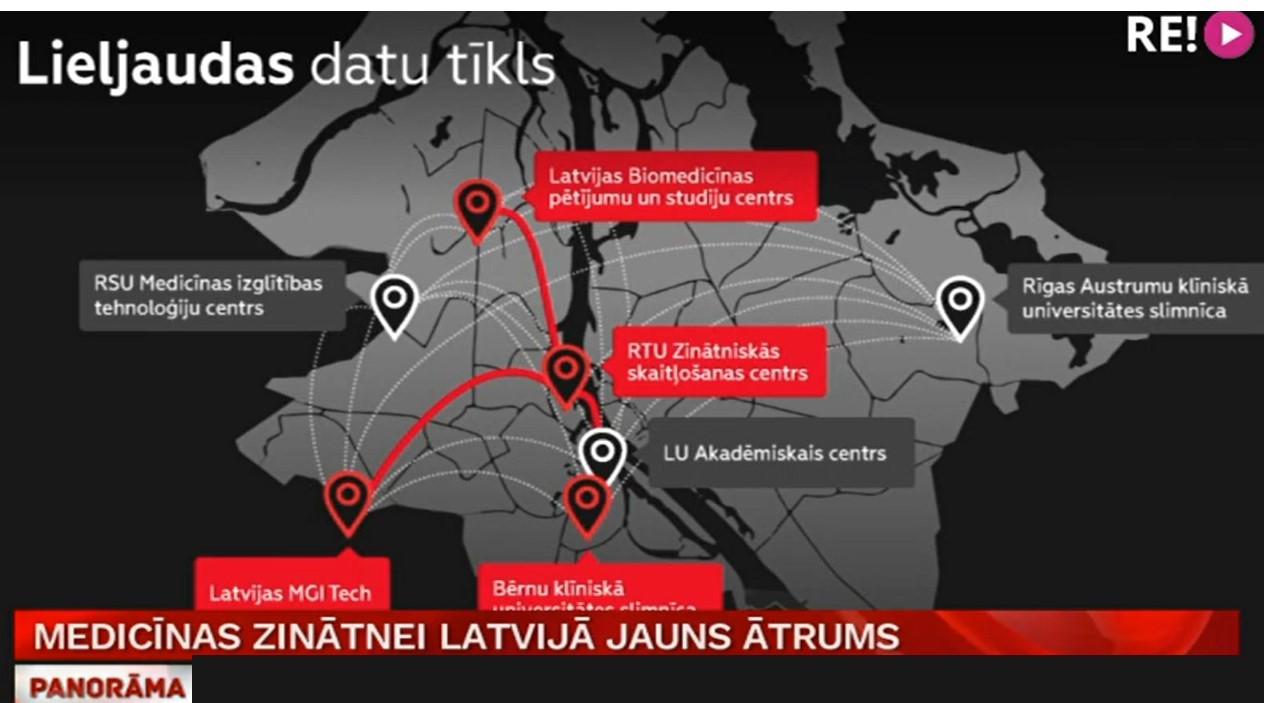RTU HPC Center Will Store and Process Medical Research Data from High-Capacity Data Network Established in Latvia
The goal of the Latvian high-capacity data network is to provide fast transfer of medical research data. The idea was launched by the company “Mikrotik”. Such partners as “LMT”, Latvian Biomedical Research and Study Centre (BMC), Riga Technical University (RTU High Performance Computing or HPC Center), as well as Riga Stradins University (RSU) take part in the development of the high-capacity data network.
“All data are sent to our HPC Center, as we are the leading computing center in Latvia, which has been specializing in such substantial research data processing and storage,” tells Lauris Cikovskis, the Head of RTU HPC Center. “For instance, BMC has been using the supercomputer of RTU for many years for analysis of genome research data. In its turn, in spring, RTU HPC jointly with the Baltic group partner institutions of the European Organization for Nuclear Research (CERN) entered the global Folding@Home activity, offering its computing resources to allow researchers make their calculations studying COVID-19 and searching for medications aimed at limiting the spread of the virus and its eventual eradication.”
The newly created high-capacity data network, where “LMT” provides optical and radio channels and “Mikrotik” – the network equipment for transmission of data between the organizations involved, will also transmit the medical data, both about COVID-19 and cancer genome research.
“LMT” president Juris Binde notes, “The existing networks did not ensure sufficient data transmission volume – the data had to travel for several hours or they had to be transported accumulated on external carriers by car. Such mode of data transmission is neither fast nor safe. The new high-capacity network provides very high speed of data transmission – up to 10 gigabytes per second.”
At the moment, one of BMC priorities is COVID-19 genome analysis, but the high-capacity network will also provide data exchange in cancer research projects. The Head of BMC Janis Klovins explains that it is impossible to find the origins of inherited diseases without genome analysis; he forecasts that the high-capacity data network will be extremely important in future, when the researchers studying the genome will be able to define possible disease risks for each individual. Janis Klovins concludes, “In this regard, the network is an indispensable investment.”
The high-capacity data network has been currently established between BMC, Children’s Clinical University Hospital, the genome sequencing center “Latvia MGI Tech” and RTU HPC Center. In future, it is planned to connect the Academic Centre of the University of Latvia, Riga Eastern Clinical University Hospital, as well as the Medical Education Technology Centre at Riga Stradins University to the network.



